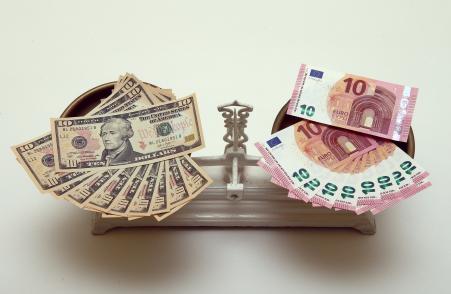By Avaneesh Pandey -

The euro is heading toward its biggest monthly decline against the dollar since March and its lowest level in over 8 months amid speculation that the European Central Bank (ECB) will unveil further stimulus measures to boost the eurozone’s economy and raise inflation.
Since the start of the year, the 19-nation currency has dropped over 12 percent against the greenback, which itself has edged up to an eight and a half month high against a basket of global currencies -- bolstered by a growing belief that the U.S. Federal Reserve will hike interest rates in December, its first such move in nine years.
“Euro selling will see its climax going into the ECB meeting, with a knee-jerk reaction to the outcome possibly sending it to new lows for the year close to $1.03,” Daisuke Karakama, chief market economist at Mizuho Bank Ltd. in Tokyo, told Bloomberg. “The euro will likely see its trough in January-March but chances will grow for its rebound as expectations for U.S. rate hikes will be more moderate next year.”
On Monday, the euro dropped to $1.0570 -- recovering slightly from a seven-month low of $1.0566 it hit last week. So far this month, the currency has weakened 3.8 percent against the dollar -- the biggest monthly drop since a 4.2 percent decline in March, when the ECB announced its 1.1 trillion-euro ($1.2 trillion) asset-buying program. The euro was last at $1.0589 at 1:21 a.m. EST.
According to recent reports, the ECB, during a policy meeting later this week, is expected to finalize and inject more monetary stimulus into eurozone economies by expanding its bond-buying program. A decision on interest rates and any further measures will be announced Thursday.
In recent weeks, ECB chief Mario Draghi has primed the markets and investors for further actions, reiterating that the bank will do whatever it must to boost inflation -- underscoring a persistent concern among euro area economies that inflation in the bloc, currently at 0.1 percent, will fail to meet the ECB’s 2 percent target by 2017.
“The ECB has prepared the markets for a package of measures and cannot afford to under-deliver or financial conditions will re-tighten,” Ken Wattret, chief euro area market economist at BNP Paribas (PA:BNPP) in London, told Bloomberg.
